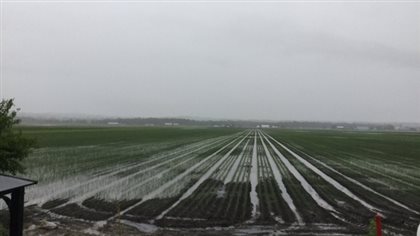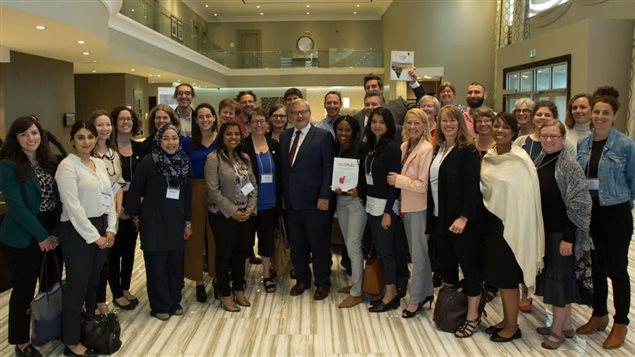Food Policy on a national scale has been a long time coming to Canada. But now the process is underway.
“Canadians waste 40 per cent of the food we produce”
At the end of May, Lawrence MacAulay, Minister of Agriculture and Agri-Food, announced that consultations would begin, and the government was committed to creating a national policy.
“Food plays a critical role in the health and well-being of Canadians, while also having a direct impact on our environment, economy, and communities. Developing this food policy is an exciting opportunity for Canadians to have their say about how government can help address those opportunities and challenges that exist in our food system.” MacAulay, said in the announcement.
The policy framework will be shaped around the following four goals:
- increasing access to affordable food;
- improving health and food safety;
- conserving our soil, water, and air; and
- growing more high-quality food.
Food Secure Canada is a network of non-governmental organisations, “including everyone from farmers to dieticians to food-banks,” director Diana Bronson says.
“And we’re really calling for a more integrated policy that will lead us to a more equitable, healthy and sustainable food system in this country,” she says.
Bronson was in Ottawa last week for the Food Summit Minister MacAulay organized.
“There were about 300 participants and I think there were some excellent discussions and we’re on the right track finally to get a national Food Policy for Canada.”
ListenBronson’s organisation has been lobbying the government for some time and she acknowledges the challenges. “It’s a complex issue, food policy, it touches on agriculture and the environment, and hunger and obviously health and healthcare costs, these are big, big issues.”

Bronson cites the need for support in northern communities and an overhaul of the government program known as Nutrition North.
“There’s so much great work going on in remote communities to try and restore the connection with the land that was often lost through residential schools and so on.”
Bronson explains that Nutrition North subsidies generally go through one major retailer giving it a virtual monopoly on selling food in Canada’s north.
She says, if, however “you’re a community garden or a you’re trying to grow food, or raise chickens, or get people back on the land, you’re not actually getting any, or very little, government support.”
“The average age of farmers in Canada is 56 years-old”
The group is calling for more support of local food production across Canada. “That would make us less vulnerable, for example, when the U.S. dollar goes up relative to ours, you know you see that right away at the grocery store because so much of our food is imported.”
For Bronson encouraging and supporting local food production brings a double benefit: it provides jobs, “good jobs” as she says, and it addresses the “succession crisis in farming.”
“The average age of farmers in Canada is 56 years-old, and young farmers who are just starting off, who are generally not from a farming background, are having trouble to make ends meet, and be able to you know, afford the land and the training and the capital they need to build a viable farm themselves.”
When asked about the alternatives, Bronson says the hi-tech solution is in the spotlight.
“Some people are in favour of you know, we don’t really need the farmers we just need computers, we can do all this remotely, and the drones can plant the seeds and the computers will monitor it, but in our view that’s not a sustainable way to think about it. It’s becoming very, very dependent on technology and really dismissing the knowledge that farmers themselves have gained over decades and millennia, ultimately, in growing food and knowing their soil, and being able to grow delicious, nutritious, accessible food.”
Many Canadians will be shocked to hear how much food we waste. Bronson says, “It’s appalling! It’s 31 billion dollars (Cdn) a year, that we are throwing away”
She says proper monitoring at different levels of the food chain and a public education campaign could and would be very successful in Canada.
“I think when people hear about the amount of food waste there is, they’re anxious to do something about it,” she says.
“This is really the kind of issue that a food strategy or a food policy can take and get its head around and bring different stakeholders together, be it the retailers, the producers, the farmers, the consumers, and start to tackle it as a country.” Bronson says.
“As long as we don’t even pose the question of food policy we’re not going to get to those answers.”
Canadians have until July 27th to respond to the online survey.
Kale is one of the many vegetables that can be grown organically in Newfoundland and Labrador. (Jonathan Castell/CBC)







For reasons beyond our control, and for an undetermined period of time, our comment section is now closed. However, our social networks remain open to your contributions.